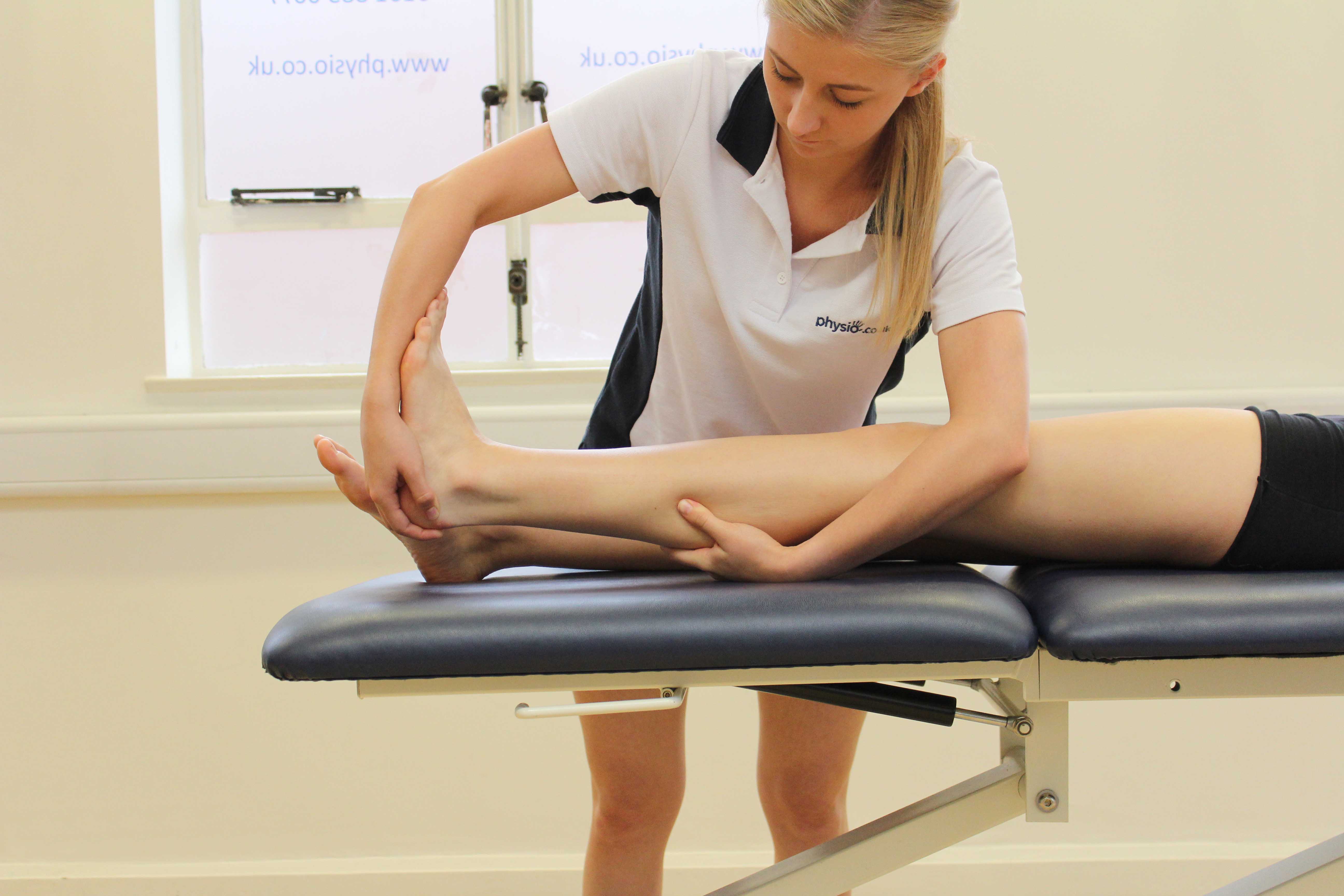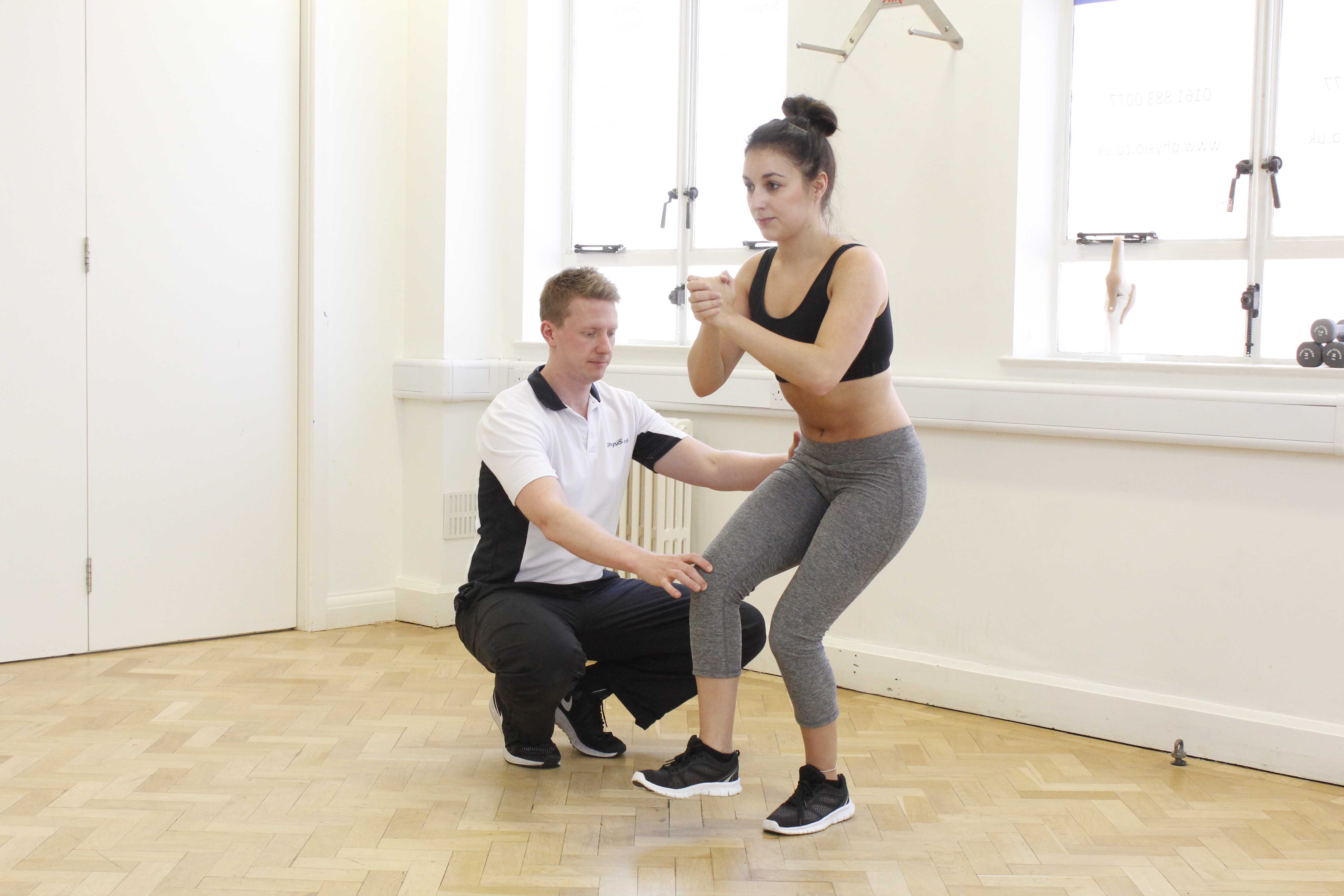What is sciatica of the knee?
The sciatic nerve runs from the back of the pelvis and ends at the feet. If the nerve becomes damaged and causes pain in the knee area, this is known as sciatica of the knee. Sciatica of the knee can be acute (less than six weeks) or chronic (more than six weeks). Physiotherapy should be used to treat sciatica of the knee.
 Above: Therapist performing knee assessment
Above: Therapist performing knee assessmentHow does sciatica of the knee happen?
There are a number of possible causes of sciatica of the knee. A prolapsed disc is a common cause of sciatica of the knee. The material that makes up the vertebral disc can leak out and irritate the sciatic nerve causing pain that can extend as far down as the knee. Other causes of sciatica of the knee include:
- Spinal stenosis
- Trauma to the spine
- Malignancy
- Infection
- Bone diseases
What are the symptoms of sciatica of the knee?
The main symptom of sciatica is pain that originates in the lumbar spine (lower back) and is referred to areas along the course of the sciatic nerve including the knee. You may also experience it in the buttocks, back of the thigh, calves and feet depending on the severity of the injury. Other symptoms include:
What should I do if I have sciatica of the knee?
If you notice symptoms of sciatica of the knee, you should obtain a professional opinion as soon as possible. This may involve having several tests including X-rays and MRI or CT scans. This will provide a more accurate diagnosis of your condition. Physiotherapy is an important part of your rehabilitation programme for sciatica of the knee.
What shouldn’t I do if I have sciatica of the knee?
You should avoid any activities that aggravate your symptoms. Do not ignore symptoms of sciatica of the knee as this may make your condition worse and delay your recovery.
 Above: Knee stability exercises supervised by specialist MSK physiotherapist
Above: Knee stability exercises supervised by specialist MSK physiotherapistPhysiotherapy treatment for sciatica of the knee.
Physiotherapy is very effective in reducing symptoms of sciatica of the knee. Your physiotherapist will devise a programme that is tailored to your personal needs and goals. Possible treatments will include:
- Hydrotherapy
- Electrotherapy Manipulation / Mobilisation
- Proprioceptive Exercise
- Postural Realignment
Are there any long-term complications of sciatica of the knee?
Surgery may be advised to patients who have chronic sciatica although this approach is very rare. Most cases of sciatica of the knee can be resolved with an appropriate graduate physiotherapy programme although the length of this will depend on the severity of the sciatica.

 0330 088 7800
0330 088 7800


































